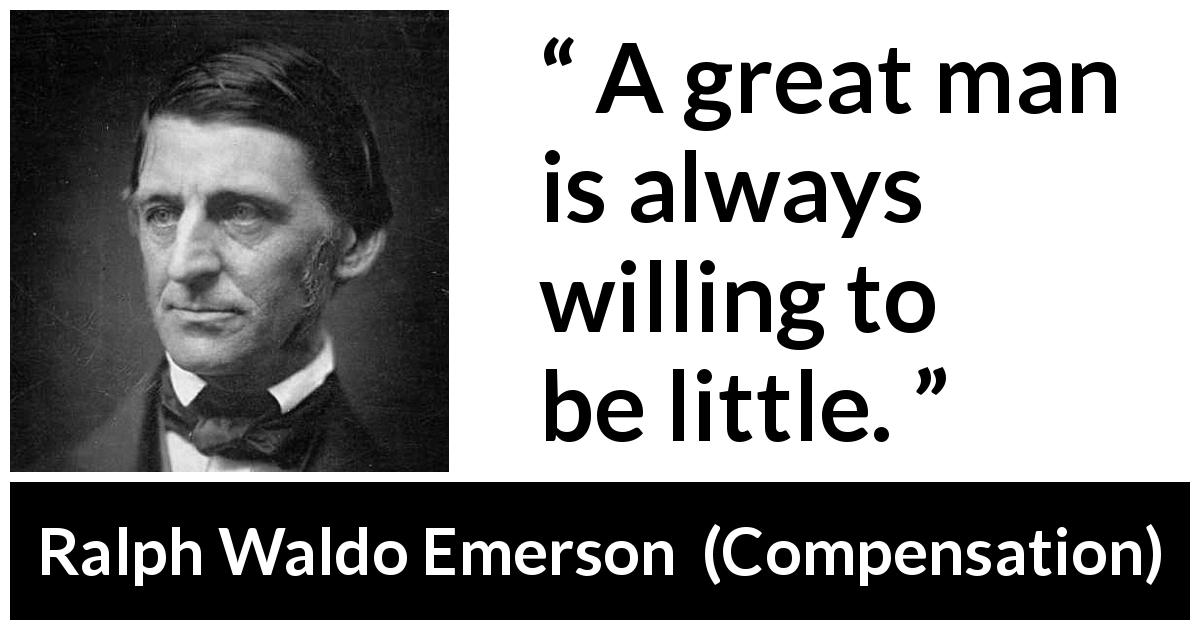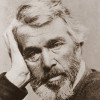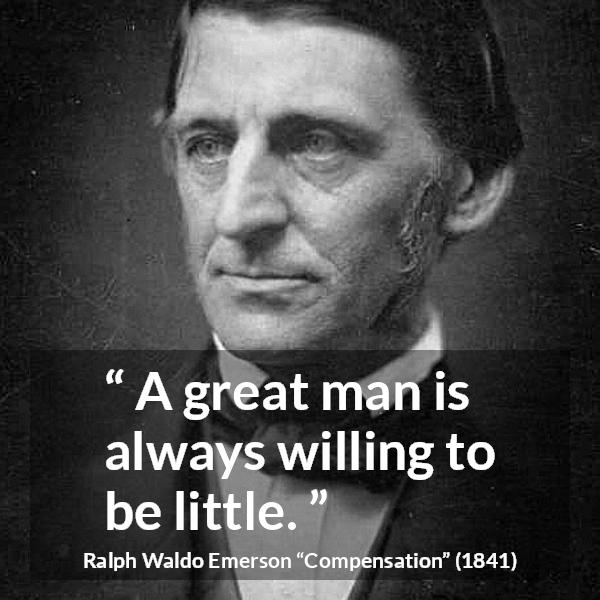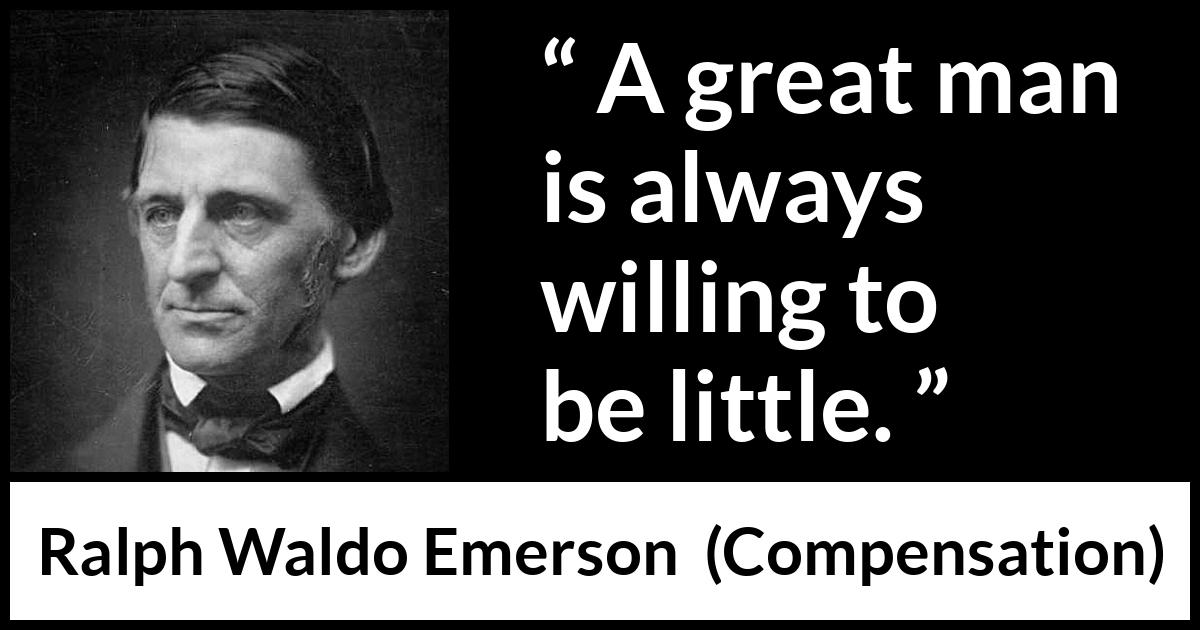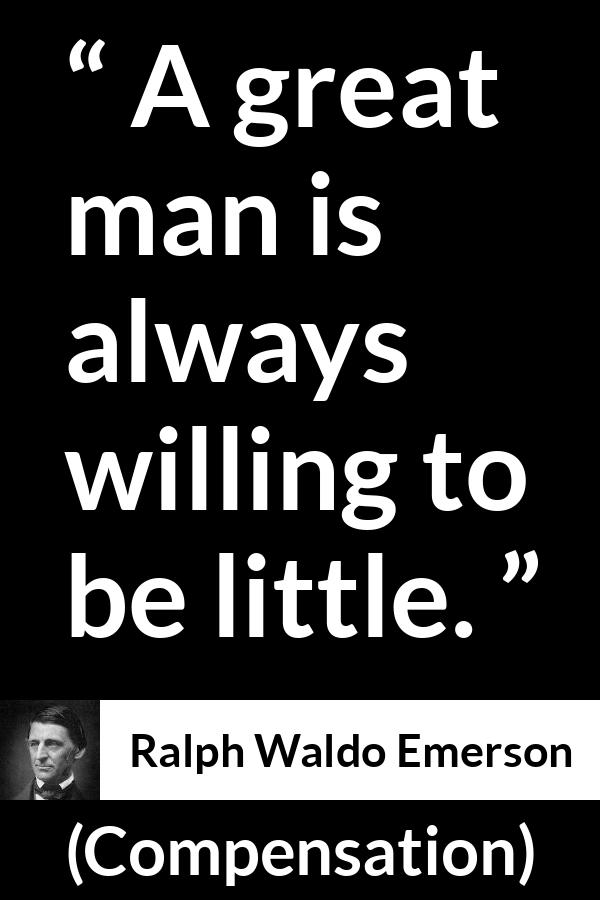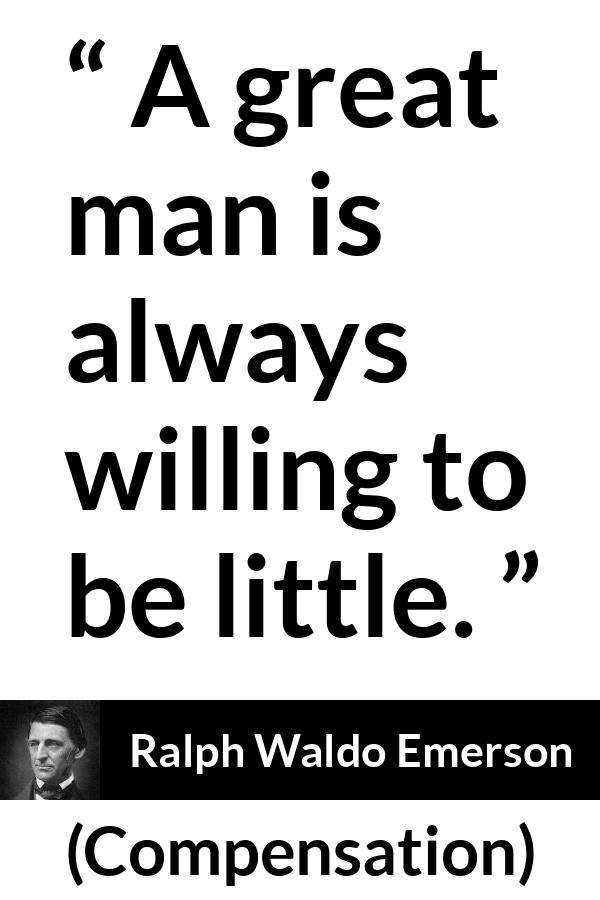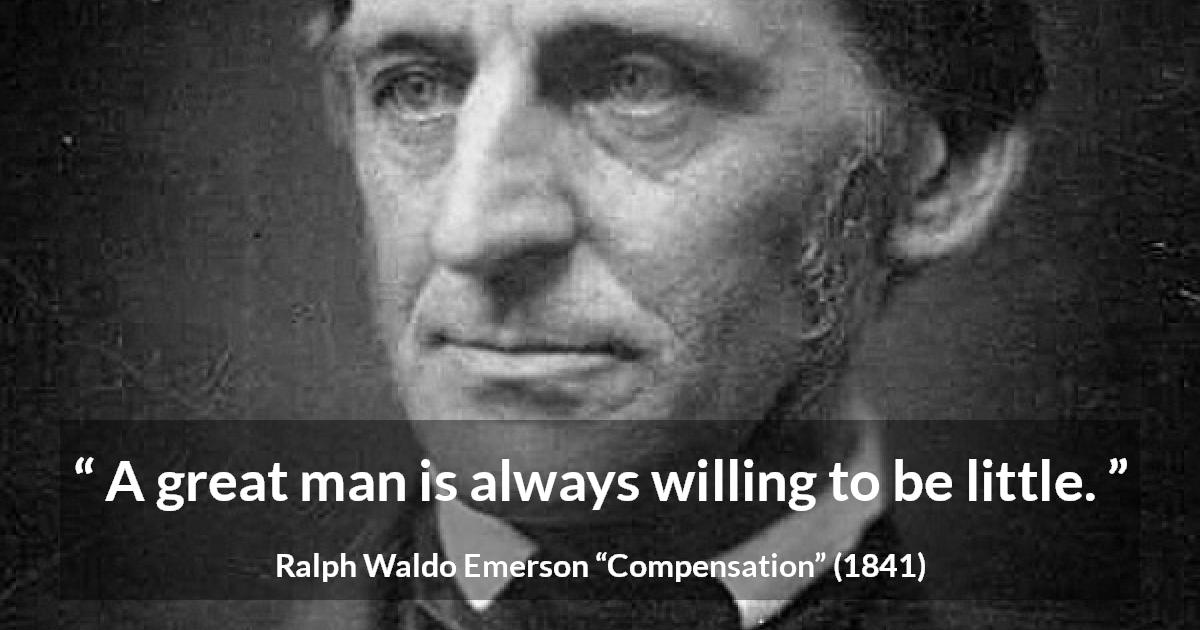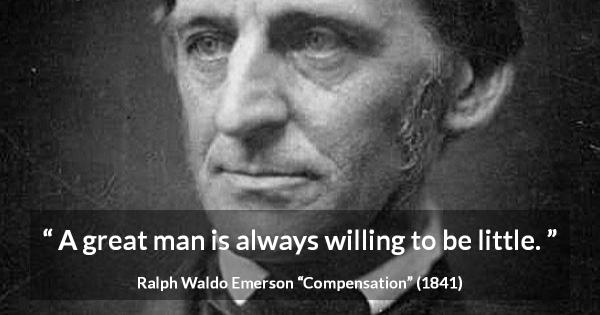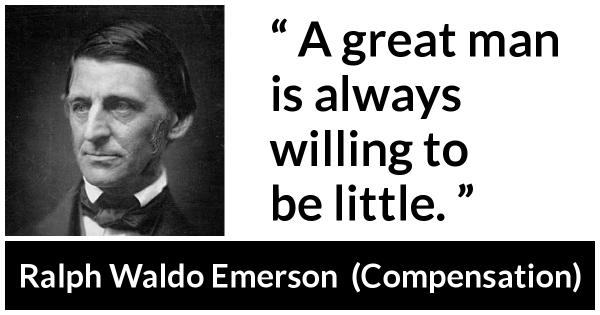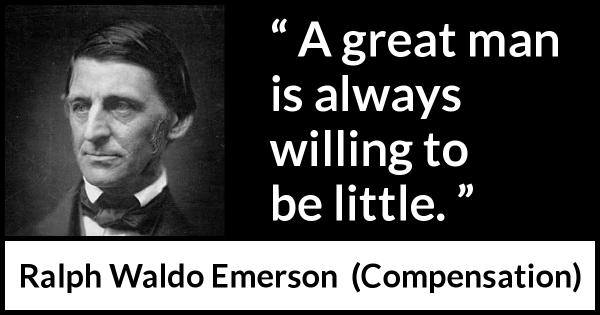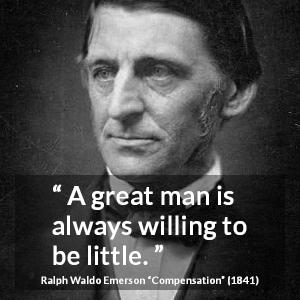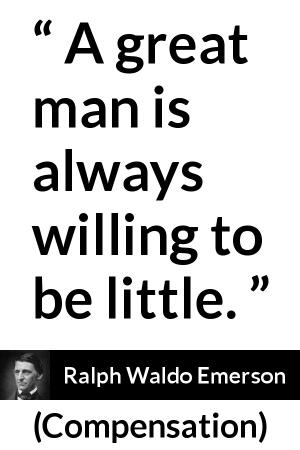“ A great man is always willing to be little. ”
Ralph Waldo Emerson, Compensation (1841). copy citation
| Author | Ralph Waldo Emerson |
|---|---|
| Source | Compensation |
| Topic | greatness humility |
| Date | 1841 |
| Language | English |
| Reference | in "Essays: First Series" |
| Note | |
| Weblink | https://en.wikisource.org/wiki/Essays:_First_Series/Compensation |
Context
“Thereby he is driven to entertain himself alone, and acquire habits of self-help; and thus, like the wounded oyster, he mends his shell with pearl.
Our strength grows out of our weakness. The indignation which arms itself with secret forces does not awaken until we are pricked and stung and sorely assailed. A great man is always willing to be little. Whilst he sits on the cushion of advantages, he goes to sleep. When he is pushed, tormented, defeated, he has a chance to learn something; he has been put on his wits, on his manhood; he has gained facts; learns his ignorance; is cured of the insanity of conceit; has got moderation and real skill.” source
Our strength grows out of our weakness. The indignation which arms itself with secret forces does not awaken until we are pricked and stung and sorely assailed. A great man is always willing to be little. Whilst he sits on the cushion of advantages, he goes to sleep. When he is pushed, tormented, defeated, he has a chance to learn something; he has been put on his wits, on his manhood; he has gained facts; learns his ignorance; is cured of the insanity of conceit; has got moderation and real skill.” source
